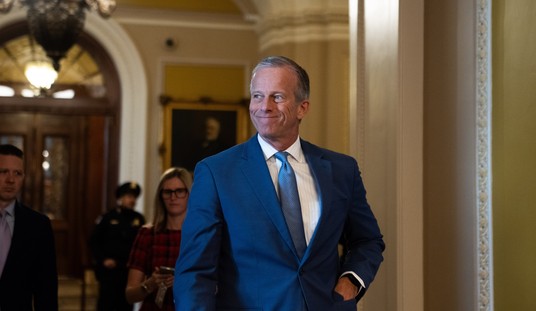There's a great moment in the 1993 movie "Searching for Bobby Fischer." Ben Kingsley plays a coach for a 7-year-old chess prodigy named Josh. Kingsley wants the boy to stop playing chess in the park and devote himself completely to Kingsley's tutelage. Josh's mother doesn't like the idea, because she's a jealous guardian of her son's childhood. "Not playing in the park would kill him. He loves it."
Kingsley complains that her decision "just makes my job harder."
"Then your job's harder," she responds.
As the father of a 7-year-old myself, that scene comes to my mind all the time. Most recently, when I read a profoundly depressing story in the New York Times about how "some educators and other professionals who work with children" don't think kids should have best friends.
"I think it is kids' preference to pair up and have that one best friend. As adults -- teachers and counselors -- we try to encourage them not to do that," said Christine Laycob, director of counseling at a St. Louis day school. "We try to talk to kids and work with them to get them to have big groups of friends and not be so possessive about friends.
"Parents sometimes say Johnny needs that one special friend," she continued. "We say he doesn't need a best friend."
As a result of this thinking, best friends are broken up. Buddies are put on separate teams, assigned different classes, etc. It's not quite the sort of thing cult leaders and North Korean prison guards do, but in principle it's not too far off either.

The response from across the ideological spectrum on the Web has mostly been outrage and disgust. Among the objections: Why ban successful, positive relationships in an effort to wean out negative ones? Why value the superficial over the meaningful? Why lie to kids that they can be friends with everyone? What about the damage to shy and introverted kids who particularly benefit from having a kindred spirit?
Recommended
All good points, but it is a bizarre symptom of our hyper-rationalist age that people are forced to articulate why best friends are valuable to kids. For the record, I think removing best friends from childhood is a barbarous and inhumane act, akin to amputating a limb from an athlete. You can still have a childhood without a best friend, just as you can still be an athlete without a leg. But why would you voluntarily make someone's life so much harder? Having someone with whom you can share the joys and discoveries of early life is a gateway not just into adulthood, but humanity.
The most offensive part of this whole enterprise is that it is aimed at making life easier for administrators, not better for kids. The social life of childhood is frustrating and unwieldy for educators, so they respond by making childhood less complicated. Indeed, it's worth noting that the psychologists the New York Times spoke to oppose the practice.
In his 1998 book, "Seeing Like a State: How Certain Schemes to Improve the Human Condition Have Failed," Yale political scientist James C. Scott documents how over time states of all kinds -- democracies, monarchies, dictatorships, et al. -- try to make their populations more "legible." What Scott means by this is that for governments to help or control people, they must first organize them in a way convenient to planners. For instance, in many societies, last names are an invention of the state, so governments can distinguish citizens more clearly. Scott documents all sorts of massive state failures that ignored human nature and common sense. The war on best friends strikes me as a perfect retail example of this wholesale line of thinking.
There's a lot of kindling here for a big culture-war conflagration. Many conservatives, myself included, see the building blocks of Brave New World Nanny-Statism (not to mention a perfect example of mission creep in American education).
But we shouldn't get ahead of ourselves. Liberals believe in having best friends, too. And conservatives understand that educators should try to dissuade bullying and blunt the sharp edges of cliques. Administrators are free to complain that best friends make their jobs harder. And we, as a society, should simply respond, "Then your job's harder."























Join the conversation as a VIP Member